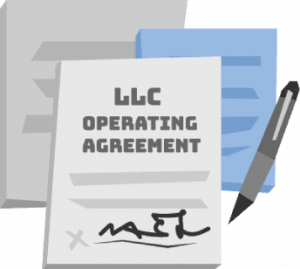How to Start an LLC in Florida
Starting a Florida limited liability company involves picking a name for your LLC, appointing a registered agent, submitting Articles of Organization to Florida’s Division of Corporations, and paying a $125 state filing fee. Our comprehensive guide takes you through each step of getting your Florida LLC off the ground.

1. Name Your Florida LLC
You’ll need to choose your business name before you register your LLC. Your LLC needs a name that isn’t confusingly similar to any other entity name in the state. Make sure your preferred name is available by using the Florida Division of Corporation’s Sunbiz entity search.
Florida LLC naming requirements
Per Florida’s Revised Limited Liability Company Act § 605.0112, your LLC name must:
- Contain the words limited liability company, L.L.C., or LLC.
- Be distinct from the name of any other business active in Florida.
- Not suggest that the business is another kind of entity—like corporation or limited partnership—or a government agency.
Reserving a business name in Florida
There is no form to reserve a business name in Florida. If you want to reserve your name in advance, submit a letter to the Secretary of State’s office with your name, address, and the business name you want to reserve, along with a $25 fee. If the name is approved, the state will reserve it for you for up to 120 days.
Getting a DBA (Doing Business As) name
On top of your LLC’s official name, you may choose to register a Florida DBA (aka a fictitious name). Fictitious names are like nicknames your business can legally use. For example, an LLC officially named Bernard Kirby Holdings LLC could also be a restaurant operating under the fictitious name St. Pete’s Pizza Panopoly. Florida requires any LLC seeking a fictitious name to do the following:
- Publish notice of your intention to register a fictitious name in a newspaper located in the same county as your registered agent.
- File a $50 Application for Registration of Name.
Securing a Domain Name
A website domain that matches your business name will improve search engine visibility, driving more customers to your doorstep. Northwest makes it easy and can get you a domain instantly. In fact, all of our LLC customers get:
- One year of free domain registration.
- A customizable business website that’s kept safe with top-shelf SSL security.
- Up to 10 professional business email addresses.
- A business phone number with local area code.
- Friendly Corporate Guides®; have questions about a filing or form? We have answers!
Trademarking your Florida LLC name
Just registering an LLC name in Florida doesn’t give you legal control over it. If another business uses your name, your means to stop them are limited without a trademark. You can trademark your name within the state of Florida by filing a Florida Application for the Registration of a Trademark or Service Mark, or protect your name nationwide with a federal trademark.

2. Appoint a Florida Registered Agent
Florida requires LLCs to appoint a registered agent. This is an individual or entity that is responsible for receiving legal notices on behalf of your business.
Florida registered agent requirements
Under Florida law, a Florida registered agent must:
- Have a physical street address in the state. No P.O. boxes!
- Be available at that address during normal business hours.
- Receive important legal mail on your business’s behalf and forward it to you promptly.
You can be your own registered agent if you live in Florida, but if you do so, you’ll need to put your name and address on the Articles of Organization, which go on the public record.
Using a registered agent service
While you’re free to be the registered agent for your business, you should consider appointing a professional registered agent. Here’s why:
- Privacy. Your Articles of Organization needs to include a principal office address as well as a registered office where the state can deliver service of process. The addresses listed in the Articles go on the public record. When you hire Northwest, you can use our office address, and keep your address private.
- Peace of mind. A quick response is important when time-sensitive state or legal notices are sent to your LLC, especially when delays mean facing fines or other penalties. When you hire Northwest as your registered agent, you get instant notifications and same-day scans of all legal mail.
- Protecting your image. Ideally, your LLC will never be sued. But if it happens, having a registered agent discreetly manage your legal notices lets you avoid a hit to your reputation from getting served in front of customers or colleagues.
Why hire Northwest?
When you hire Northwest as your Florida registered agent or to form your Florida LLC, you’ll have the option of adding Florida Virtual Office Service. With it, you’ll get a Florida virtual address with a unique suite number, an office lease, and the choice to receive same-day digital scans or weekly physical mail forwarding.
Want more? Northwest’s Florida Virtual Office Service includes our feature-packed Phone Service, which gives you a local Florida number you can use to keep your personal number private.

3. File Florida Articles of Organization
When you’re ready pull the trigger and create your LLC, submit Florida LLC Articles of Organization with the Division of Corporations. You can file Articles online, by mail, or in person for a $125 state filing fee. The Division of Corporations can process business formation filings as quickly as within five business days, or mailed filings in 10 days (add time for mailing). Online filing has a faster turnaround, and you’ll get an email of receipt from the state within minutes of submitting your filing.
Below is the information you’ll need to file your Articles:
Required:
- Company name. Must include Limited Liability Company, LLC, or L.L.C.
- Address. Provide a street address for the LLC’s physical location, and, if different, a mailing address (your LLC’s mailing address can be a P.O. Box).
- Registered agent. The person or entity that will accept legal mail for your business.
- Registered office address. Physical address in Florida for service of process.
- Signature of someone authorized to sign for the LLC.
Optional:
- Names and addresses of LLC members or managers. This information is optional, but some financial institutions require it to open a business bank account. It’s also required for state-issued Worker’s Compensation.
- Effective date. You can choose a start date for your LLC up to 90 days after filing.
- Any additional provisions you want to include, such as your business purpose.
Start Your Florida LLC Today!


4. Create an Operating Agreement
An operating agreement is a contract between each member of your Florida LLC establishing company rules and structure. Florida does not require LLCs to adopt an operating agreements, but it’s standard business practice and can help you avoid legal disputes and misunderstandings. Your operating agreement should establish:
- voting rights and decision-making powers
- management structure
- profits and loss distribution
- initial investments
- rules for transferring LLC ownership
- rules for handling dissolution
It’s recommended you consult a lawyer before approving your operating agreement. We provide free, attorney-drafted Florida operating agreement templates you can use to get started.

5. Get an EIN
Most LLCs need an EIN (Employer Identification Number), an IRS tax ID similar to a social security number for your business. All multi-member LLCs, LLCs taxed as corporations, and any business with employees must have an EIN. You can apply for an EIN through the IRS for free. If you have an SSN, apply online and receive your EIN immediately. If you don’t, you’ll have to submit Form SS-4 by mail or fax or call (267) 941-1099.
Or just hire Northwest, and we can get your EIN for your new Florida LLC!

6. File the Beneficial Ownership Information Report
As of March 26, 2025, most international LLCs registered to do business within the U.S. are required to file a Beneficial Ownership Information (BOI) Report with the Financial Crimes Enforcement Network (FinCEN). The deadline for filing your BOI Report depends on when your business was registered.
The BOI Report requirement is currently under review by both FinCEN and Congress, but the deadline for new international businesses is 30 days from their U.S. registration date. We’ll keep our pages up to date as court rulings play out, so you’re not left out of the know about this important business filing.

7. Open a Bank Account
Once your LLC is registered in Florida, you’ll have keep your LLC compliant and in good standing with the state. Here are a few additional steps to prepare for:
Opening a bank account
An LLC only has limited liability because it’s considered a separate legal entity from its members—but mixing personal and business finances (even accidentally) harms that separation and jeopardizes your LLC’s limited liability. This is why your Florida LLC needs its own bank account to help keep those funds distinct from your personal money.
To open a bank account for your Florida LLC, you’ll likely need to bring the following to the bank:
- a copy of your Florida LLC Articles of Organization
- your LLC operating agreement
- your LLC’s EIN information
You’ll also need an LLC Resolution to Open a Bank Account if your Florida LLC has multiple members.
Note: Every bank has its own requirements, so call ahead to determine the exact documents you need.
Licenses and permits
Depending on the nature of your business and where it operates, you may need one or more business licenses or permits, which may include:
- Professional licensing (For regulated industries such as medicine, law, construction, etc.)
- Home Occupation permits (For home-based businesses)
- Fire Department permits
- Health Department permits
- Zoning permits
Check with your city and county government to see if they require a general business license as well.
Florida tax requirements
Florida has no personal income tax, and unless your LLC opts to be taxed as a C-corporation, it won’t be subject to Florida’s 5.5% corporate net income tax.
Even so, your LLC probably needs to register with the Florida Department of Revenue for other taxes. These include:
- A sales and use tax (6%) for any Florida business selling taxable goods or services.
- Reemployment Tax (funding unemployment services), starting at a 2.7% rate on the first $7,000 paid to each employee. A new percentage is determined after your LLC operates for 10 quarters.
- Taxes and fees associated with specific goods and services (for example, dry cleaning gross receipts tax, communications services tax, and new tire and lead-acid battery fees).
Florida Annual Report
All Florida LLCs must file a Florida Annual Report with the Division of Corporations by the first of May, starting the year after the LLC is formed (so businesses formed between January 1 and April 30 have a little extra time to file their first report). The report updates the state on who owns your LLC and how you may be reached.
Filing the report has a $138.75 fee, but if you’re late (even by one day), a $400 fine is charged. Worried you’ll forget? Hire us to file your Florida Annual Report for you. We’ll remind you 90 days before it’s due.
START YOUR LLC TODAY

8. Florida LLC FAQs
It costs $125 to file your Florida Articles of Organization, which is the form that you need to file to start your Florida LLC.
In general, online filings are processed in five days, mailed filings in 10 days (add time for mailing). Florida’s Division of Corporations provides a handy-dandy Document Processing Dates page where LLC filers can view current processing times.
LLCs are taxed as pass-through entities by default, which means that they don’t pay corporate income tax. Instead, the revenue of the LLC goes directly to the members, who each pay individual income tax on their share on their personal federal return, which is subject to the 15.3% self-employment tax. You may also need to pay local taxes, depending on the policies in the Florida city or county your business operates from.
Florida allows the creation of professional limited liability companies (PLLCs), a type of LLC specifically for licensed professions like medicine, law and engineering, just to name a few. PLLCs receive more oversight than conventional LLCs. If you work in certain regulated professions in Florida and wish to form an LLC, you’ll be required to form a Florida PLLC.
Florida does not allow domestic series LLCs to be formed in the state, but foreign series LLCs can register to do business in Florida by submitting an Application for Certificate of Authority with the Florida Division of Corporations.
An LLC’s operating agreement should have a set process for transferring ownership from one or more members. Generally, LLC ownership is transferred through a partial sale where one member sells their interest in the LLC, or by a complete sale of the company.
*This is informational commentary, not advice. This information is intended strictly for informational purposes and does not constitute legal advice or a substitute for legal counsel. This information is not intended to create, nor does your receipt, viewing, or use of it constitute, an attorney-client relationship. More information is available in our Terms of Service.
Ready to Start an LLC in Florida?







